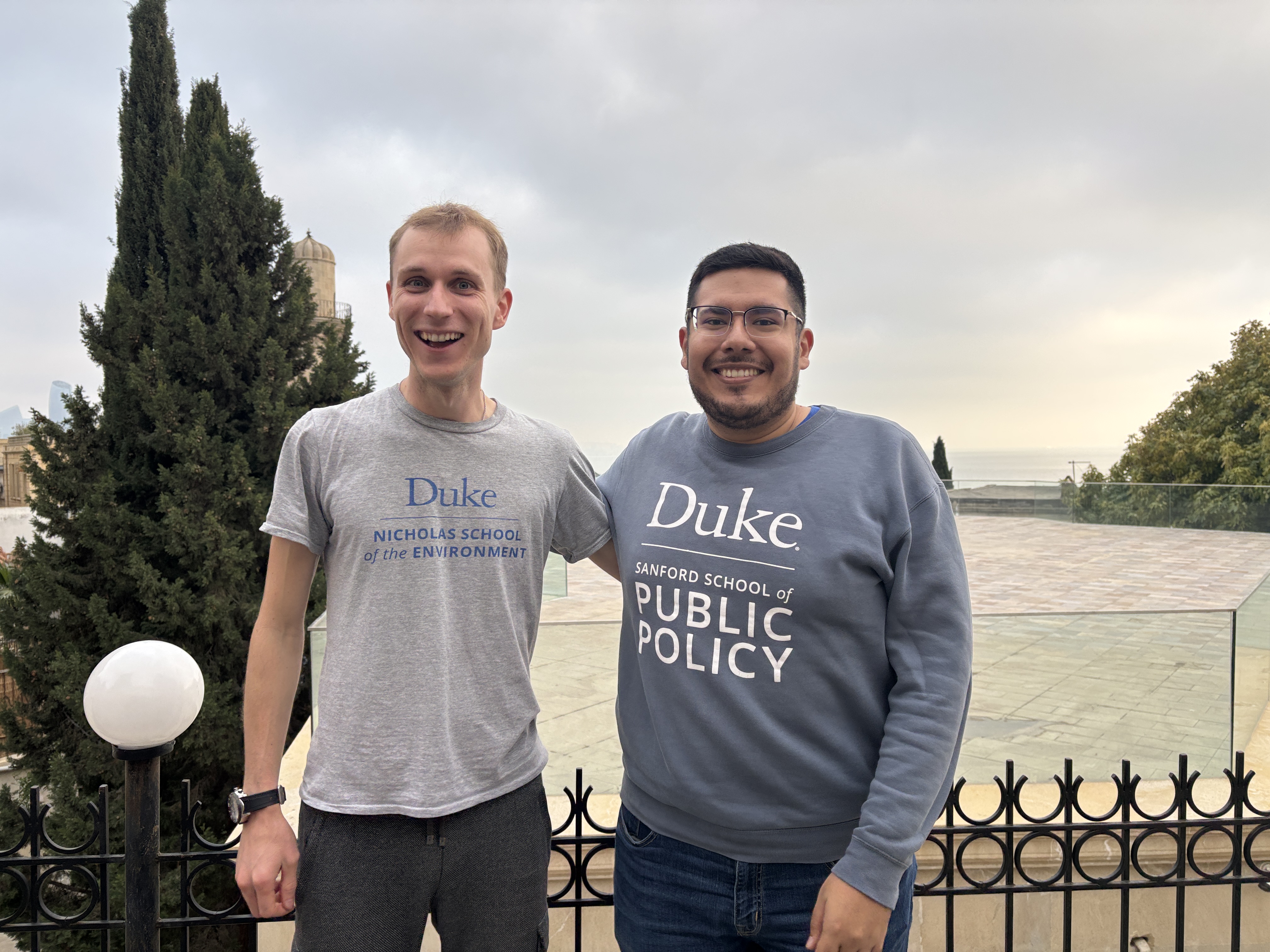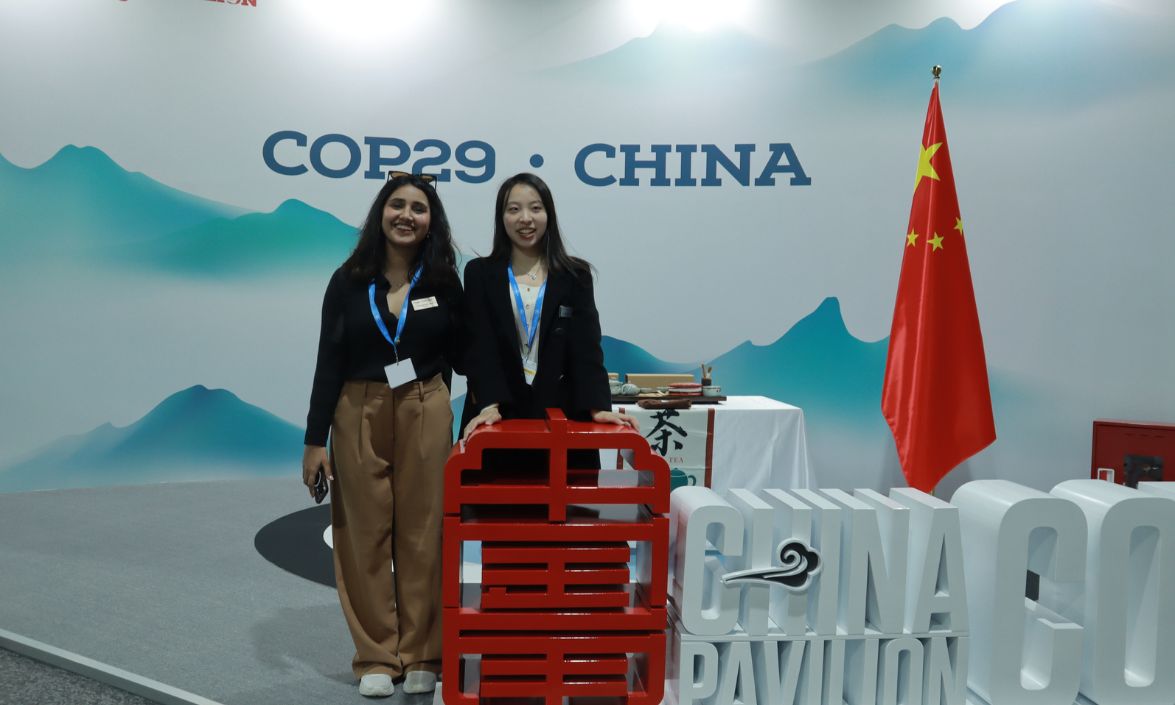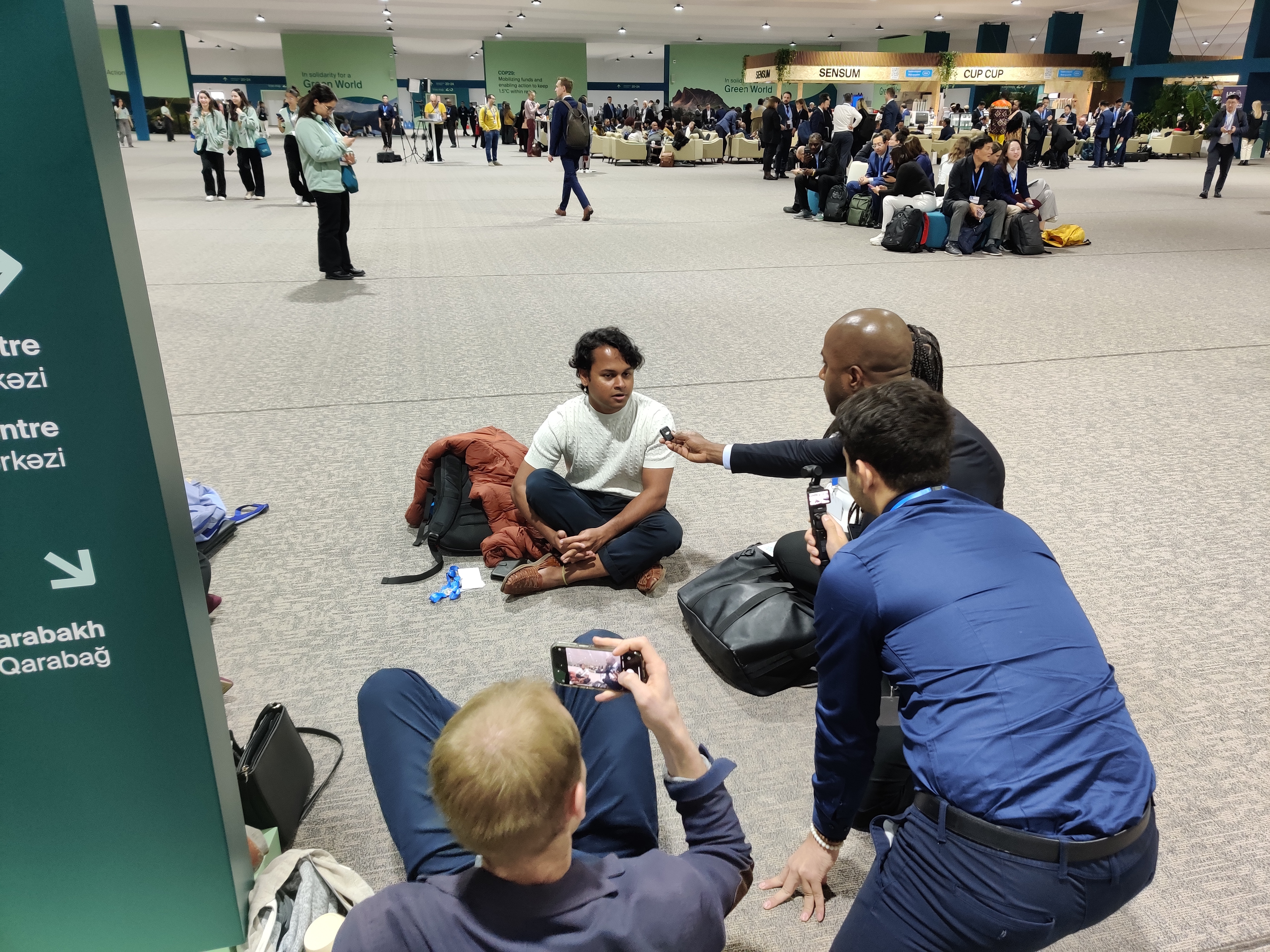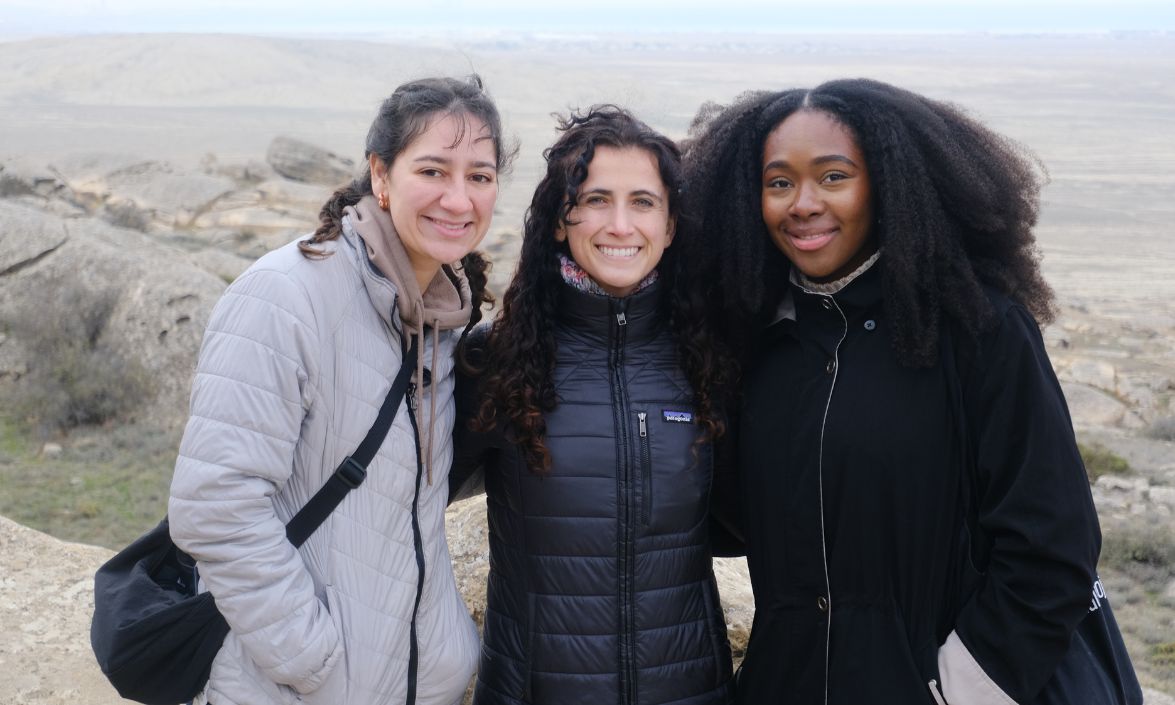The Duke Experience at COP29
Duke experts and students were on the scene in Azerbaijan for the annual United Nations Climate Change Conference

At the conference, Ewing launched a new report analyzing how U.S. electricity demand could change over the next decade and what the implications might be for greenhouse gas emissions. The analysis was conducted by Martin Ross, Ewing, Brian Murray, Tim Profeta, Robert Stout, and Michael Yoo for Energy Pathways USA.
Also notable was the launch of an updated digital U.S. Department of Interior Nature-Based Solutions Roadmap, developed in partnership with the Nicholas Institute. In addition to overviews of 29 nature-based solutions strategies, the user-friendly resource now includes more than 400 case studies. One of the Duke authors recently published a Q&A about the roadmap.
Clara Park, visiting political science professor at Trinity College of Arts & Sciences who was part of the delegation, offered a post-COP commentary: her recommendations for continuing a multilateral approach to climate financing to help developing countries.
Snapshots of COP29

“The [U.N. Climate Change Negotiations Practicum course] introduced me to the challenge of balancing optimism with realism, particularly when addressing the urgent need for climate action in the face of political and economic constraints.”
Gary Alvarez Mejia, master of public policy student at the Sanford School of Public Policy

“As extreme heat becomes a leading threat to human health, livelihoods, and infrastructure, it also plays a critical role in shaping decisions about mobility and displacement ... [The International Organization for Migration] event reinforced the critical importance of cross-sector collaboration, from governments and NGOs to private-sector stakeholders, to mitigate the impacts of extreme heat and protect vulnerable populations.”
Ashley Ward, director of the Heat Policy Innovation Hub


“The goals for countries to be a part of COP are multidimensional, and only a few veterans of international negotiation have the experience to give an approximate estimate of a country’s goal, especially the most impactful players. We were lucky enough to meet one of these veterans, Stephen Hammer, the CEO of New York Climate Exchange and [an] ex-negotiator.”
Dmytro (Dima) Zlenko, M.E.M./M.B.A. student at the Nicholas School of the Environment and the University of North Carolina Kenan-Flagler Business School
“From individuals teaching local farmers climate-resilient agricultural practices to … those starting non-profits to ensure that LGBTQ+ and disabled people are included in disaster recovery plans – climate action is alive and well. I am leaving COP even more convicted to continue my own climate action: expanding legal protections for those affected by climate change.”
Gabriela Nagle Alverio, practicum T.A. pursuing a J.D. at Duke Law and a Ph.D. in environmental policy at the Nicholas School of the Environment and Sanford.

“In the afternoon, I serendipitously stopped by the Chinese pavilion, where the speaker was discussing the Carbon Generalized System of Preferences (CGSP)—a topic closely aligned with my research interests. CGSP is a framework that uses monetary and non-monetary incentives to encourage sustainable behaviors.”
Lu Liu, master of public policy student at the Sanford School of Public Policy

“On my last day at COP, I sat next to an environmental minister from South Sudan on the bus, his upbeat smile in stark contrast with my slouched shoulders (of disappointment). He had just exchanged contacts with a researcher from the Scripps Institute of Oceanography, and was looking forward to partnering with him and raising awareness of the ocean’s weather impacts in landlocked South Sudan. While there should be more conferences like it, COP remains the one place where vulnerable countries can build access to the knowledge and resources they need to survive.”
Sameer Swarup, master of environmental management student at the Nicholas School of the Environment

“Still, hope persists. The voices of youth activists, indigenous leaders, and grassroots movements are growing louder. These groups are increasingly shaping the conversation and holding negotiators accountable. If COP29 taught us anything, it’s that the energy and solutions exist—we just need the political will to match.”
Kayla Fericy, Ph.D. candidate in civil and environmental engineering at Pratt